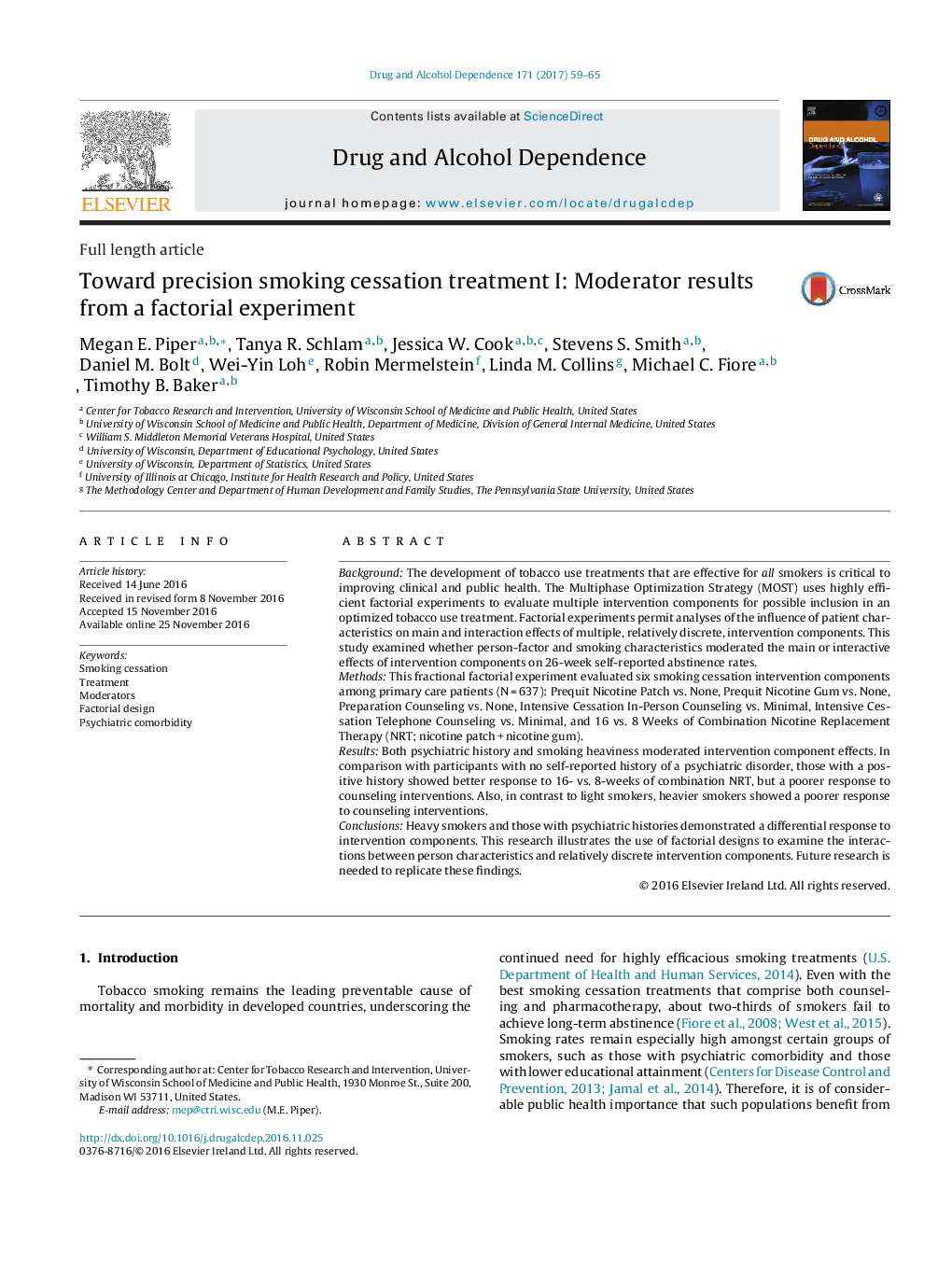| کد مقاله | کد نشریه | سال انتشار | مقاله انگلیسی | نسخه تمام متن |
|---|---|---|---|---|
| 5120196 | 1486120 | 2017 | 7 صفحه PDF | دانلود رایگان |
- Factorial experiments allow researchers to examine how person-factors influence response to individual intervention components.
- Self-reported psychiatric history affected response to smoking cessation counseling and combination nicotine replacement therapy duration.
- Participants who smoked more than a pack of cigarettes per day had a poorer response to smoking cessation counseling interventions.
BackgroundThe development of tobacco use treatments that are effective for all smokers is critical to improving clinical and public health. The Multiphase Optimization Strategy (MOST) uses highly efficient factorial experiments to evaluate multiple intervention components for possible inclusion in an optimized tobacco use treatment. Factorial experiments permit analyses of the influence of patient characteristics on main and interaction effects of multiple, relatively discrete, intervention components. This study examined whether person-factor and smoking characteristics moderated the main or interactive effects of intervention components on 26-week self-reported abstinence rates.MethodsThis fractional factorial experiment evaluated six smoking cessation intervention components among primary care patients (N = 637): Prequit Nicotine Patch vs. None, Prequit Nicotine Gum vs. None, Preparation Counseling vs. None, Intensive Cessation In-Person Counseling vs. Minimal, Intensive Cessation Telephone Counseling vs. Minimal, and 16 vs. 8 Weeks of Combination Nicotine Replacement Therapy (NRT; nicotine patch + nicotine gum).ResultsBoth psychiatric history and smoking heaviness moderated intervention component effects. In comparison with participants with no self-reported history of a psychiatric disorder, those with a positive history showed better response to 16- vs. 8-weeks of combination NRT, but a poorer response to counseling interventions. Also, in contrast to light smokers, heavier smokers showed a poorer response to counseling interventions.ConclusionsHeavy smokers and those with psychiatric histories demonstrated a differential response to intervention components. This research illustrates the use of factorial designs to examine the interactions between person characteristics and relatively discrete intervention components. Future research is needed to replicate these findings.
Journal: Drug and Alcohol Dependence - Volume 171, 1 February 2017, Pages 59-65
